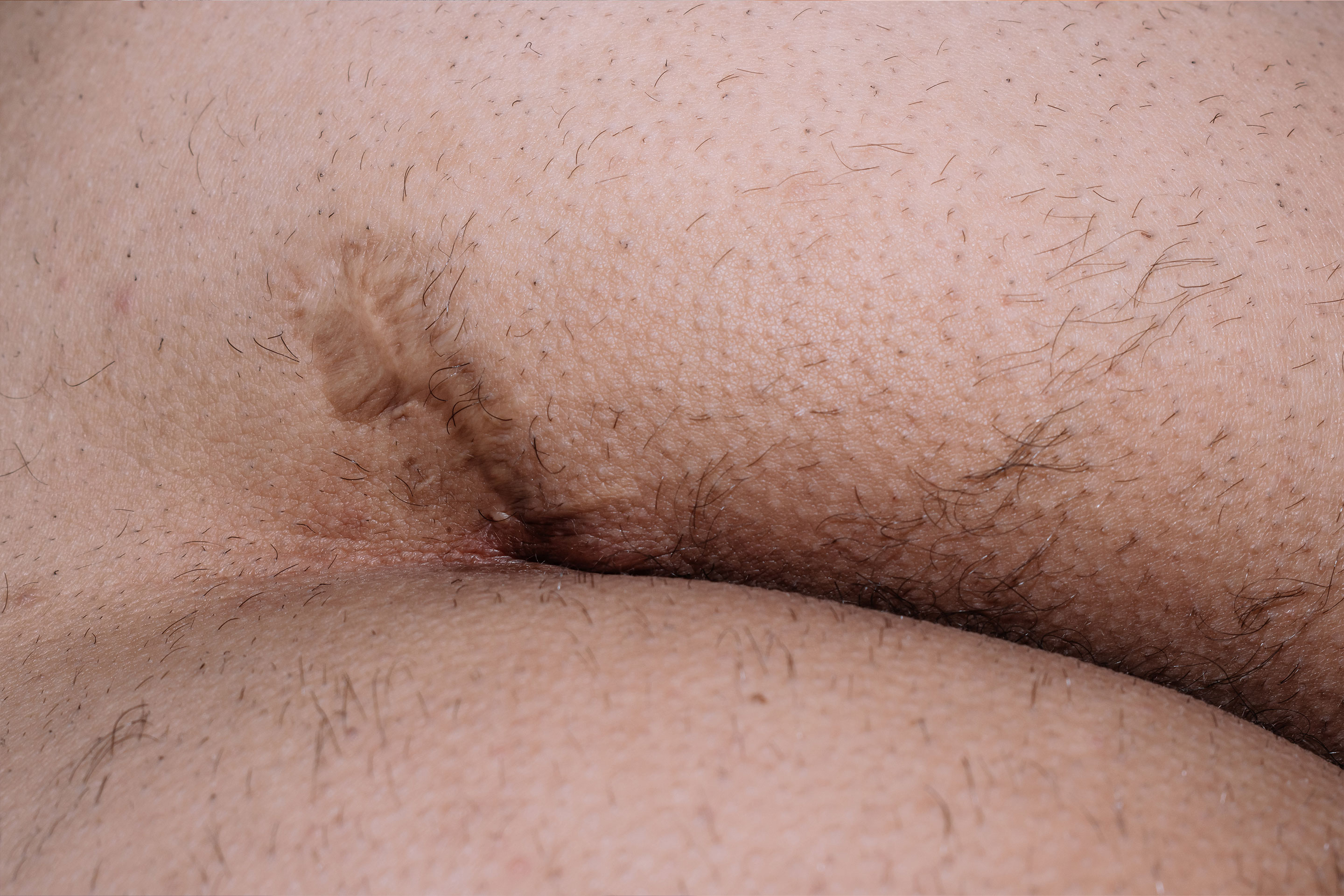Pilonidal disease is a chronic skin infection that occurs in the crease of the buttocks near the coccyx (tailbone). It often begins as a cyst, which is a small sac that can contain hair, skin debris, and other tissue. Pilonidal cysts may become infected and cause an abscess or spread into sinus tracts.

Pilonidal disease can be asymptomatic, but when it flares up, symptoms may include:
Diagnosis is typically made through a physical examination of the area. Your doctor may also ask about your symptoms and risk factors. Imaging studies are not usually needed unless the doctor suspects an underlying abnormality or to delineate complex pilonidal sinus tracts before surgery.
Conservative Treatment:
For small, asymptomatic cysts or for acute pilonidal abscesses:
Aftercare Following Incision and Drainage:
Surgical Treatment Options:
For recurrent or complex pilonidal disease:
Lifestyle Adjustments:
Recovery from pilonidal disease surgery depends on the procedure performed. Open wounds may require daily care and take several weeks to heal, while closed wounds typically heal faster but have a higher risk of recurrence. During recovery, avoiding direct pressure on the wound, maintaining good hygiene, and following the surgeon’s instructions are essential for optimal healing.
Pilonidal disease can be a chronic condition with a tendency to recur. Even after surgical treatment, it is important to maintain skin hygiene and make the necessary lifestyle changes in order to reduce the risk of recurrence. However, with appropriate treatment and care, most people recover fully and are able to return to their normal activities.

Dr Kaushal offers 15+ years of experience and holds a Master of Surgery Degree, as well as being fully certified in gastroscopy and colonoscopy by the Gastroenterology Society of Australia (GESA).
Dr Kaushal takes an empathetic, warm-hearted and friendly approach to patient care and is completely dedicated to patient outcomes.
He consults and operates across Souther-Western Sydney.